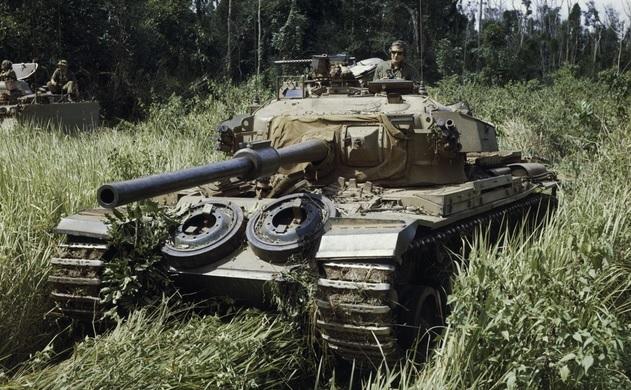
One of the most used quotes in support of the argument that the Australia Defence Force has no need for tanks in future structures is that they’re surplus to requirements because, in part, they haven’t been deployed since the Vietnam War. This is an oft-repeated line run by commentators in two of our major newspapers, the Sydney Morning Herald and The Australian. It is also a factoid employed in articles hosted by SBS and a range of other media outlets.
At its heart though, it is a nonsensical argument. If we were to use the ‘hasn’t been employed since Vietnam’ as the metric for the utility of defence platforms, there are a whole raft of other ones whose continued relevance would be open to discussion.
An anniversary marked this week provides a particularly good example of why the Vietnam metric is so lacking in intellectual rigour. Seventy years ago, on 27 March 1953, was the last time an Australian military aircraft was involved in air-to-air combat. If the half-century since an Australian tank fired a shot in anger is considered Exhibit A in the case against them, what are we to make of the seven decades and billions of dollars that we’ve spent on an air-to-air combat capability that we’ve never had to use?
And taking the ‘use it or lose it’ argument to its logical conclusion, what should the general public think about the eye-watering cost of our new nuclear submarines come April when it will be 108 years since a Royal Australian Navy submarine last launched a torpedo in anger? Yes, you heard correctly—108 years.
Of course, I’m not questioning the utility of submarines or combat aircraft or tanks as part of a robust ADF. Rather, this is an appeal to those who seek to influence public debate to avoid the pitfalls inherent in declaring capabilities obsolete simply because they were last used in the Vietnam War. Australian artillery hasn’t fired a shot in anger since Vietnam (although Australian gunners served with UK gun batteries in Afghanistan), yet the US’s use of artillery to support the Syrian Democratic Forces in defeating Islamic State in Syria and the difficulties in keeping up the supply of ammunition to Ukraine shows how critical tubed artillery remains on the modern battlefield.
Time alone doesn’t consign a capability to the scrapheap. Technological advances may do so, or the nature of conflict itself. But often those facts are only known once a conflict has commenced and the adversaries’ capabilities become known. Which is why predicting the obsolescence of a capability is so difficult, and why the various sages who seek to do so would do well to buttress their arguments with a deeper level of analysis about scenarios in which capabilities are, or are not, likely to be used. Of all the arguments as to why a capability is no longer required, temporal distance from the last time it was used is often the weakest.
So, when the defence strategic review is published and the impact on the defence budget of the AUKUS submarine project is better understood, it would be good if the commentariat could discuss the pros and cons of various capabilities that the ADF may require in the future without referencing the Vietnam War. Some capabilities, after all, retain their utility regardless of when they were last used.